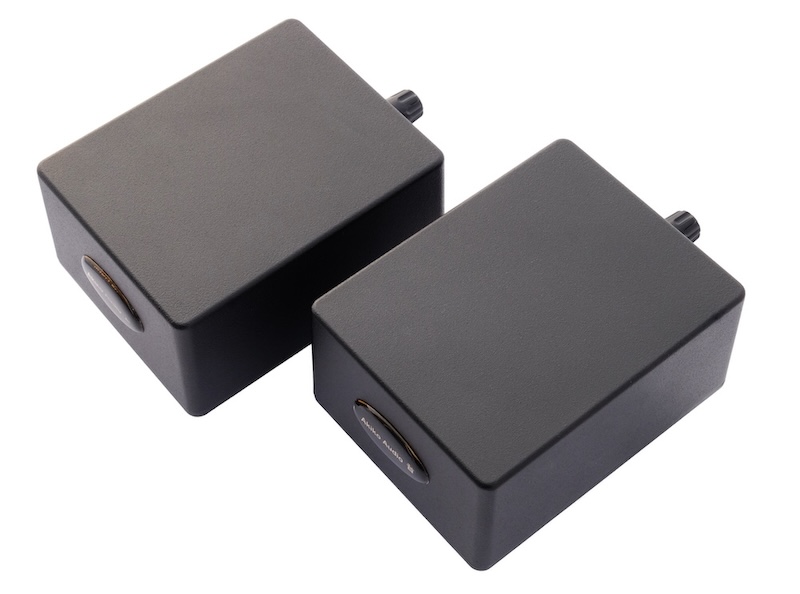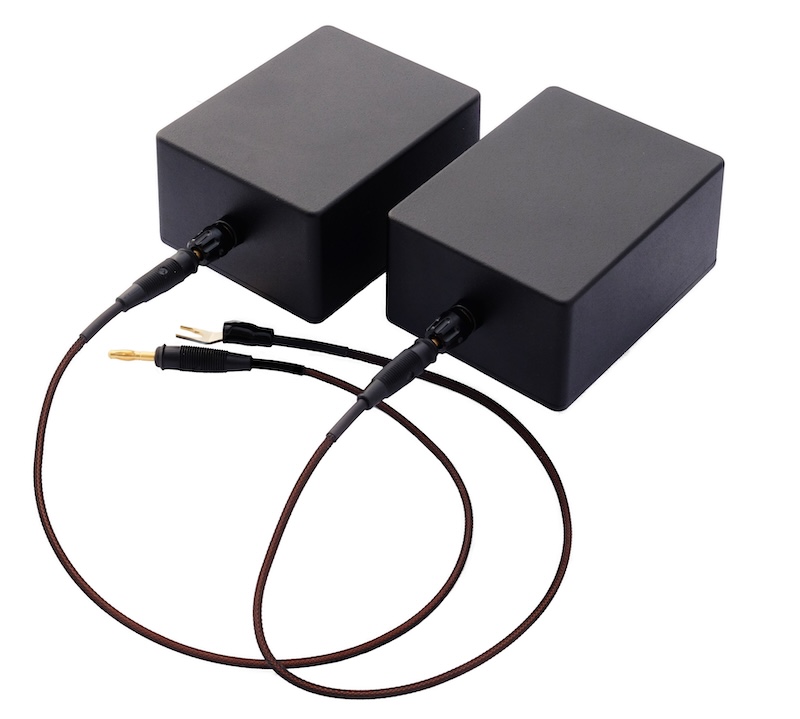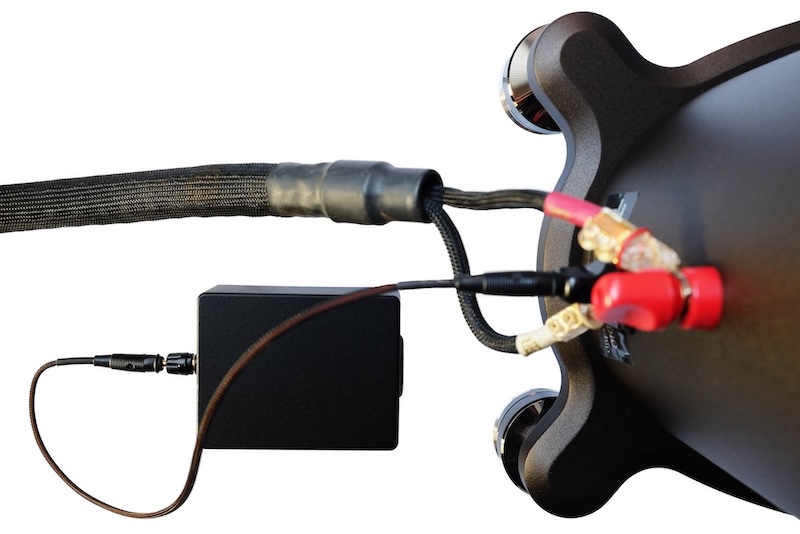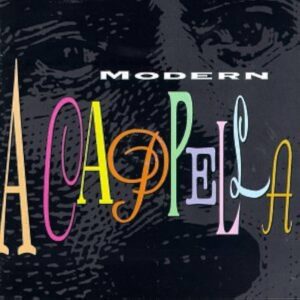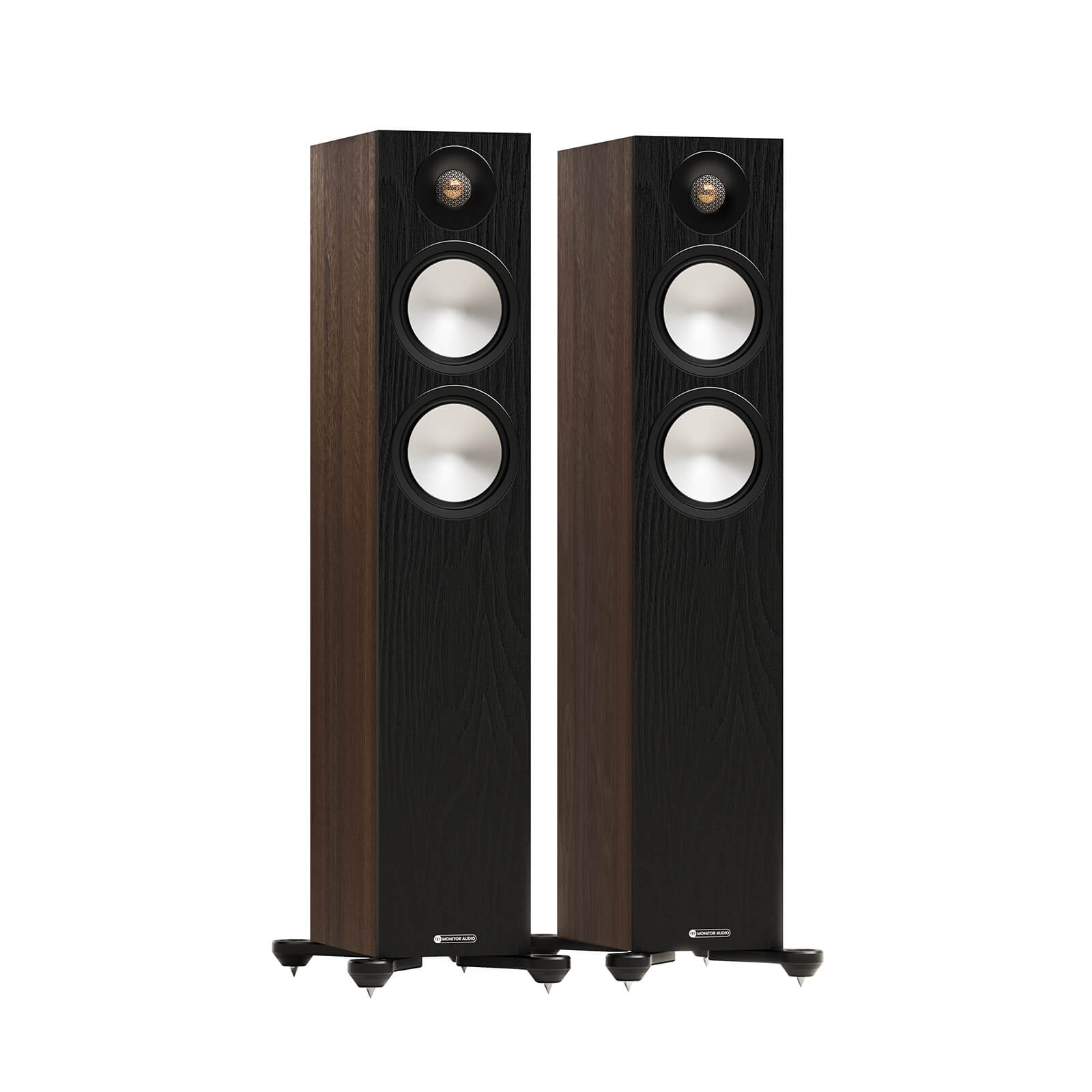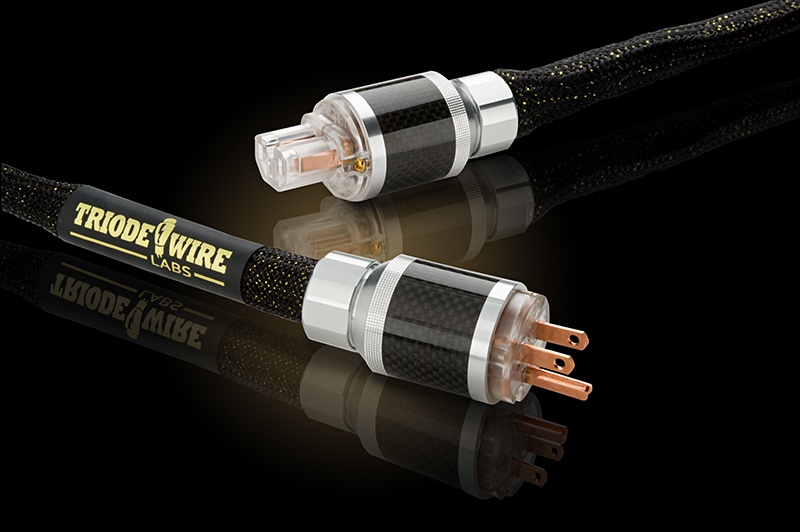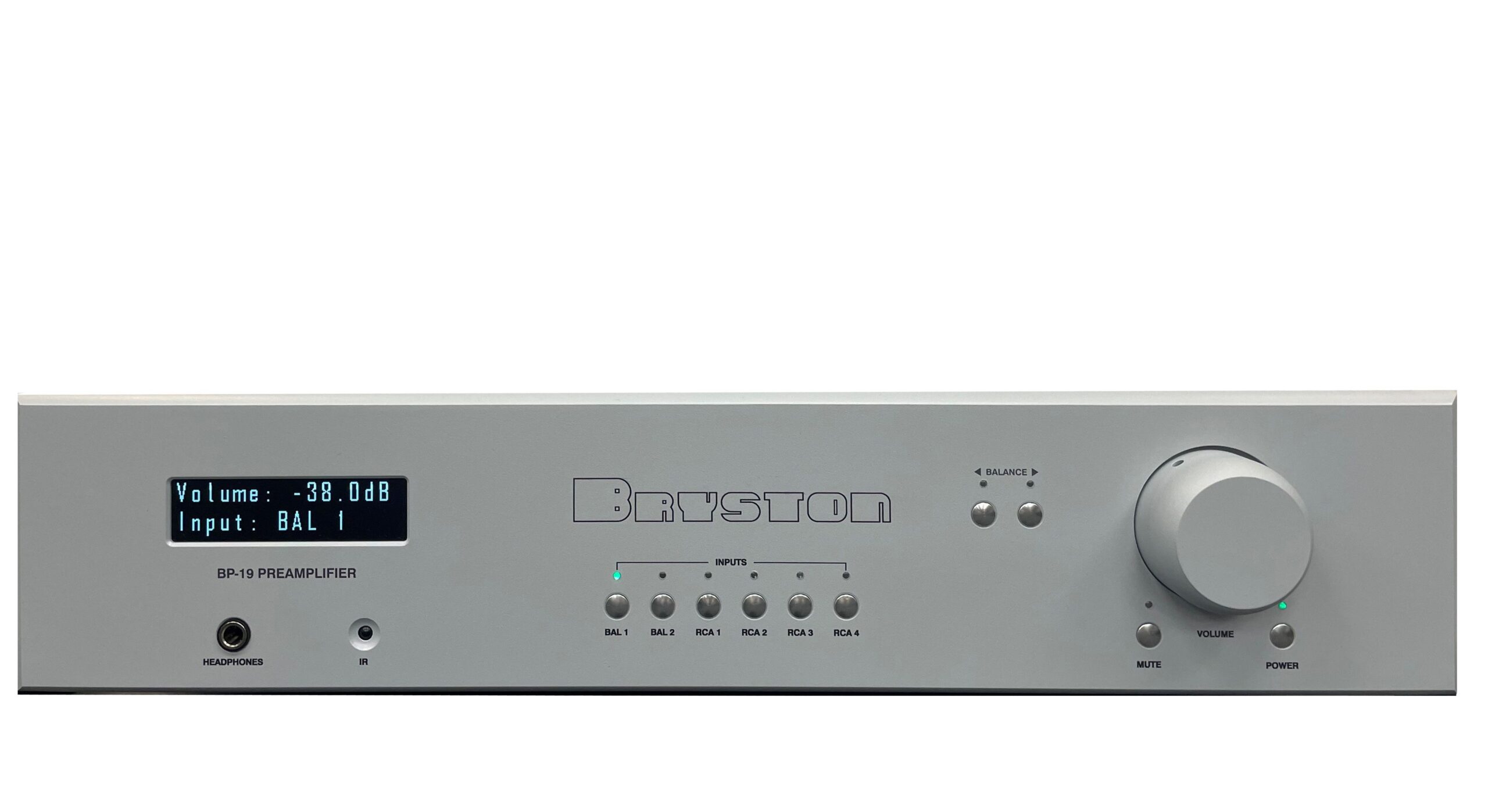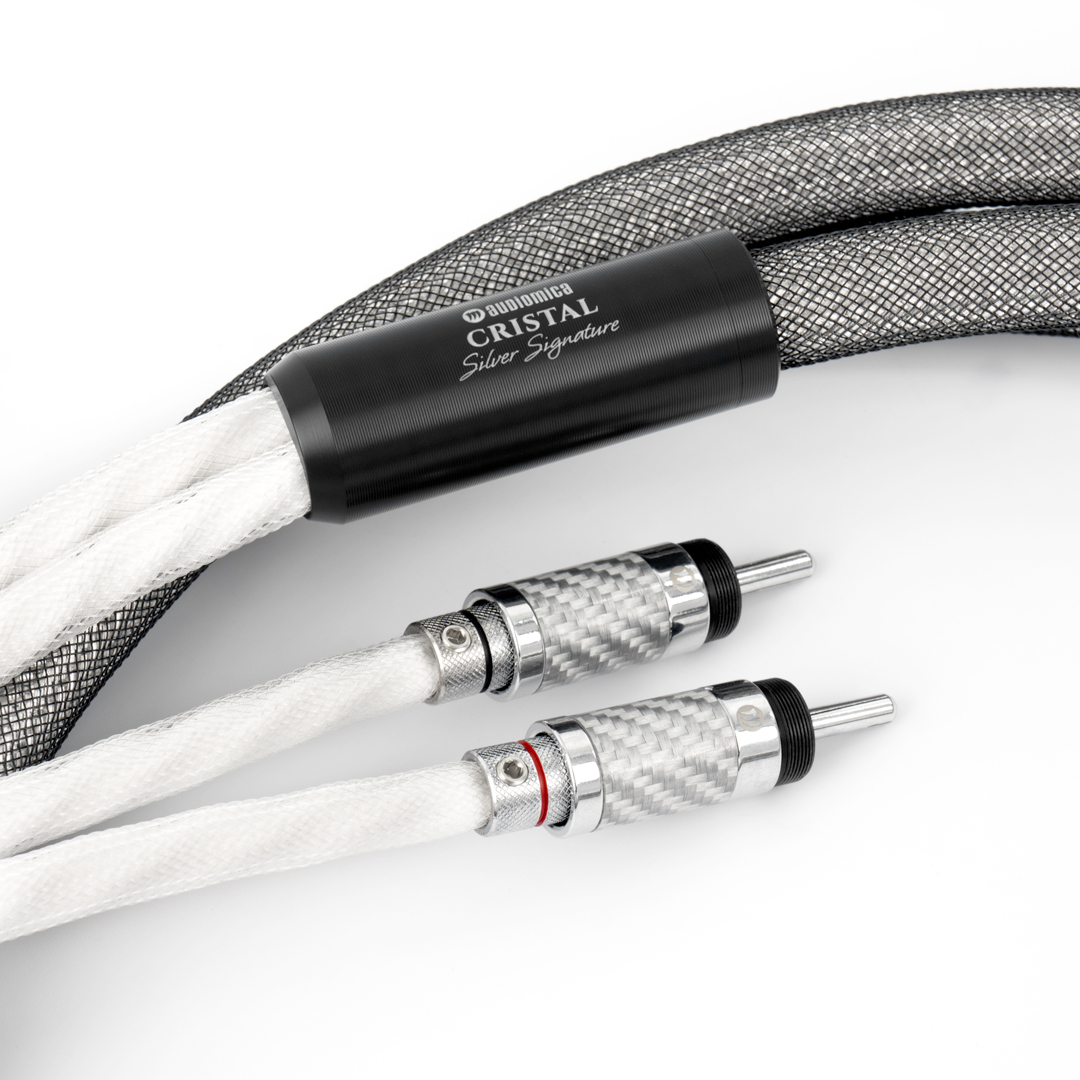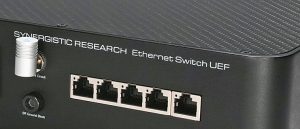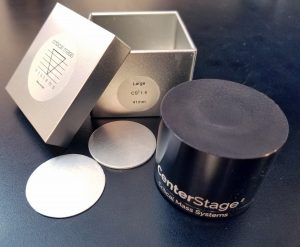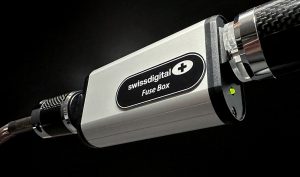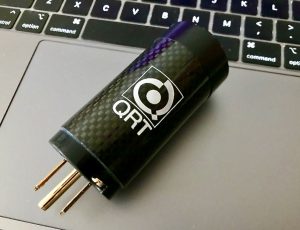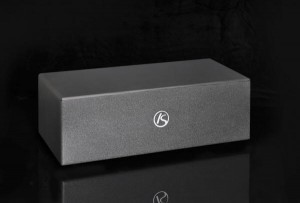Audiophile tweaks; you can either love them or hate them, but if you are a passionate audiophile, they are difficult to ignore. Sure, they can be controversial, and in a few cases, they can even be outright frauds with claims that border on the ludicrous. However, in my experience, if you look long and hard enough, you will find tweaks that reward you with easy to hear improvements, at a fraction of a cost of upgrading major components.
I like to regard tweaks as the spice of the audiophile world. In the sphere of gourmet cuisine, it is paramount to get the main ingredients right, because if you do not, no amount of quality spice will save the day. So, if you attempt to cook a ribeye steak, first and foremost, make sure you get the best cut of meat that you can afford, and then you can turn your attention to the spices, to enhance the taste.
Similarly, in the audiophile sphere, you should first make sure that you choose main ingredients like speakers, amplifiers, source components, digital to analog converters, cables etc., that are as good as you can afford and then look to tweaks that enhance the listening experience by improving the sound quality.
Every once in a while, you may even happen upon a tweak that makes a bigger sound quality improvement than if you were to upgrade one of your major components and, as a bonus, the tweak could be priced at just a fraction of what it would cost to upgrade a major component. The Akiko Loudspeaker Improver, is just such a tweak.
One company that I have grown to trust to provide audiophiles with tweaks that are "The Real McCoy" is Akiko Audio. Interestingly, the "McCoy" phrase does not originate in Scotland, as you might suppose: It originated in Canada when in 1844, Elijah McCoy developed a new kind of ironing board, lawn sprinkler, and other inventions. Other companies tried to copy his inventions but those never worked as well, and so people began saying "Make sure it's a Real McCoy."
Similarly, Akiko Audio is not a Japanese company as you might assume from the name: It is a Dutch company operating in the town of Maastricht in the Netherlands by a father and son team of Marc and Sander van Berlo. I have long admired Marc and Sander for their uncanny ability to think outside the box and come up with truly innovative products that deliver solid results, which has helped them carve a unique niche for themselves in the audiophile world.
This being the case, when Sander contacted me and very kindly offered to let me be the first in the world to review their latest innovation called "The Loudspeaker Improver," I had no hesitation to welcoming this opportunity, and I am so glad I did!
The Loudspeaker Improver utilizes crystal patterns and paramagnetic piezoelectric properties of natural raw materials, like minerals and gold, to reduce high-frequency noise in the audio signal fed into passive speakers. In the past, Akiko Audio has introduced many products like the Tuning Sticks and the Corelli Power Conditioner, which also reduce high frequency noise without limiting power to your components in any way.
Many audiophiles underestimate the negative impact of noise on the listening experience. If you are one of them, think of the last time you boarded an aircraft. When you enter the plane, you are immediately aware of the fairly loud engine noise that infiltrates into the cabin. However, in around 5 to 10 minutes your brain tunes out this noise, and you are not aware of it anymore, unless you consciously choose to focus on it. This does not mean that the noise does not negatively impact you. In fact, this omnipresent noise plays a significant factor in causing you jet lag and fatigue, especially on long haul flights. It is not that dissimilar with audio systems. The noise in the audio signal may be low enough so that you are not aware of it, but it does play a part in increasing your listening fatigue when you listen to your music.
The Loudspeaker Improver works its magic while connected to the negative terminal of a passive speaker. Therefore, in essence, it does its thing where the rubber hits the road; at the point where the rest of your system has already processed the electrical audio signal and just before your transducers turn that electrical signal into sound waves that you can hear.
Unlike many tweaks from other companies, Mark and Sander don't just expect you to take their word for what they claim that their products can do; they can actually prove with actual readings from precision measuring equipment, that their products do, in fact, reduce high-frequency noise.
The Loudspeaker Improver is solidly built and consists of a petite handmade, 1 kilo, 135 x 90 x 63mm black anodized aluminum box equipped with 4mm Hirschmann gold plated banana sockets. This needs to be connected to your loudspeaker's negative terminal with the provided connection cable that has silver plated copper conductors with PTFE insulation. You have a choice of customizing your cable termination with 6/8mm gold plated spades or a 4mm gold plated bananas. The standard length of the cable is half a meter but you can request for a longer cable up to 1.5 meters if that is what you need, for tall floor standing loudspeakers that have their terminals way up the body of the speaker cabinet.
The Loudspeaker Improver has no internal active power filtering or electronic components, and adopts a parallel configuration so as to have no impact on the technical properties of the speaker cable and amplifier that you are using.
You need one Loudspeaker Improver for each of your loudspeakers, and they can be ordered as a set of two or individually. So, if you have a home theater configuration, you can get one for your center speaker as well. According to Sander, the Loudspeaker Improver works synergistically with their other high frequency reducing products.
Like other Akiko Audio products, the Loudspeaker Improver has a 10-year factory warranty and a 30-day money back guarantee if, on the off chance, you are not satisfied with the quality of performance of the product. The Loudspeaker Improver with a half meter cable retails for $1070 for a set of two units.
I have always been very conscious of the fact that the overall noise level of my reference system does negatively influence its sound quality. I had therefore taken some pretty strong pre-emptive measures to minimize it. These included using a great performing Isotek Sigma active power conditioner, and Akiko Audio's own tuning sticks and Corelli passive power conditioner. This being the case, I had tempered my expectations of what I could expect in terms of a positive difference the Loudspeaker Improver would make to the already relatively low noise floor of my reference system. I was in for quite a surprise!
From the get go, the Loudspeaker Improvers made their presence known in no uncertain terms. The music emerged from my ACA Seraphim Skogrand Edition speakers from a background that was much quieter than before. It was a pretty eerie feeling that took some getting used to!
Hitherto, with tracks that had intermittent periods with no sound signal from one of the channels, the noise floor, albeit very low, was still audible enough to indicate that the channel was operational, and I had gotten used to that being the norm. With the Loudspeaker Improver inserted into the mix, it seemed to me that the channel with no music information was dead and it prompted me to check my reference system to see if there was something amiss. It took me some time to get used to the fact that the channel was not dead, but rather dead quiet! This left absolutely no doubt in my mind that the Loudspeaker Improver was having a very positive impact on the noise floor of my reference system.
So, with such a discernibly lower noise floor, what kind of impact does it have on the sound reproduction quality? Quite a bit, to say the least! The music sounds so much cleaner, more pristine, and fuller. Voices have more saturation and presence. The sound stage is more three dimensional, more holographic. The spaces between notes that were hitherto occupied by a thin layer of noise is now blissfully silent, allowing me to detect a lot more air around the notes.
The ever so slight muddiness that used to be in the bass, has all but disappeared making the lowest octave notes so much tighter and more tuneful. The high notes are so much sweeter, more delicate, and tonally pure with a lot more sparkle. The midrange is more relaxed and has so much more definition as well as transparency, I am now able to hear a lot deeper into the music. My Pass Labs monoblocks used to deliver great channel separation, but now even that has been enhanced. All this has resulted in such a reduction in listening fatigue, I am now able to listen to my reference system for many more hours and still want more.
For this audition, my source was the Roon Nucleus Plus, which continues to be the best music server I have encountered. It helps me easily and quickly access the music that I need from my library of over a quarter of a million tracks. If you have a very large digital music collection, you will love the way Roon cross-links credits for performers, songwriters, producers, engineers, and composers, and the way it sorts your library by artist, album, genre, labels, bit depth, sample rate, and more.
When listening to Shirley Horn's "The Music that makes me Dance" from her You Won't Forget Me album, her husky voice comes through with an extra layer of seduction. The lower noise floor also now helps me hear how, when she pronounces the word "Dance" and prolongs the "sssss," it dovetails so melodiously with the soft and delicate strokes on the ride cymbal that follows.
Mark Knopfler's inimitable and intricate guitar skills came through with a greater sense of definition and realism on the track "You and Your Friend" from the Dire Straits' On Every Street album. I got more of a sense of the mysterious and exotic Arabian Desert vibe when I played "Moroccan Soul" by Ahmet Erden from his Moroccan Spirit album.
One of my favorite acapella groups is Ladysmith Black Mambazo because of the way they sing with such joy and gay abandon. On the track "Unomathemba" on the Modern Acapella album, the blacker background allowed me to better focus on each of the voices of this African acapella group.
Another acapella group that I thoroughly enjoy is The Puppini Sisters, and one of the better tracks on their Betcha Bottom Dollar album is "Sway." The ultra-quiet background enhanced the PRaT and made this track so much more enjoyable to listen to.
Few artists can equal Arne Domnerus for conveying deep emotions on the saxophone and clarinet, and when I played "Sometimes I Feel Like a Motherless Child" from the Antiphone Blues album, with the Loudspeaker Improver doing its thing, I got goosebumps with the incredibly sad rendition of this melancholy song.
Marc and Sander van Berlo continue to amaze me with their ability to pull one rabbit after another out of their hat, and I am quite comfortable predicting that the Loudspeaker Improver will be yet another winner that will make a lot of audiophiles very happy.
In my 36 years of reviewing audiophile gear, I can, hand on heart, state that the Loudspeaker Improver is one of the most cost-effective tweaks I have encountered in the $1000 price range. If your audiophile system cost you over $7000 and are looking for frugal ways to improve its performance with a $1000 budget, you will be hard pressed to find a tweak than delivers better bang for your buck than the Loudspeaker Improver.
Besides, with the 30-day satisfaction or your money back guarantee, no questions asked policy that Akiko Audio has, which reflects their confidence in their products, you have everything to gain and nothing to lose by trying out the Loudspeaker Improver. It has my highest recommendation!
Loudspeaker Improver
Retail: US$1070 a pair. US$535 for a single, each with a 0.5 meter cable. 1 meter and 1.5 meter cables also available.
Akiko Audio
Churchilllaan 69, 6226 CT Maastricht, Netherlands
+31 43 851 5561




